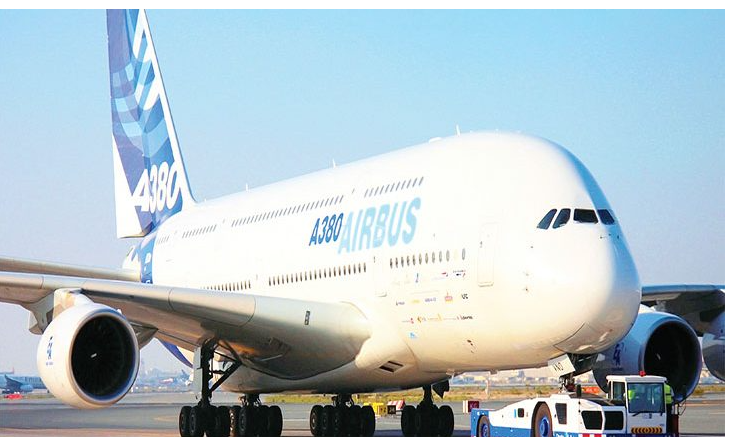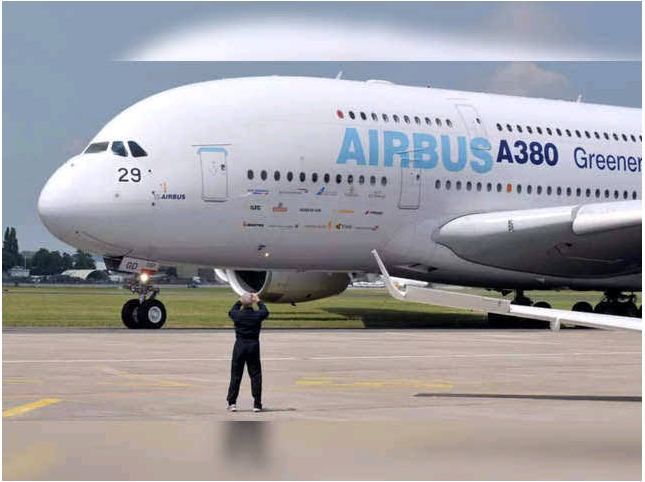 Airbus, one of the world’s leading aircraft manufacturers, has unveiled an optimistic forecast for Africa’s aviation sector, projecting a need for 1,460 new aircraft by 2043. This announcement was made during the recently concluded Aviation Africa 2024 Summit in Johannesburg, South Africa, held from September 16-17. The summit, which drew aviation leaders and experts from across the globe, provided a platform to discuss the future of air travel across the continent, with a specific focus on growth, sustainability, and innovation.
Airbus, one of the world’s leading aircraft manufacturers, has unveiled an optimistic forecast for Africa’s aviation sector, projecting a need for 1,460 new aircraft by 2043. This announcement was made during the recently concluded Aviation Africa 2024 Summit in Johannesburg, South Africa, held from September 16-17. The summit, which drew aviation leaders and experts from across the globe, provided a platform to discuss the future of air travel across the continent, with a specific focus on growth, sustainability, and innovation.
Africa’s aviation sector has long been viewed as an untapped market with significant potential for expansion. According to Airbus’ Global Market Forecast (GMF), the demand for new aircraft will be driven by a confluence of factors including rapid population growth, urbanization, an expanding middle class, and increasing demand for travel both within the continent and internationally. By 2043, Africa’s air traffic is expected to double, positioning it as a key player in the global aviation industry.
The forecast predicts that both widebody and single-aisle aircraft will be essential to meet the growing demand. Airbus highlighted its new models, such as the A321XLR, A350-1000 ULR, and A350 Freighter, as game-changers in the African market. These aircraft are designed to serve both long-haul and regional routes efficiently, offering low operating costs, enhanced fuel efficiency, and compatibility with sustainable aviation fuels (SAF), a crucial aspect in the industry’s push towards decarbonization.
The GMF also emphasized the expected surge in intra-regional air travel, which is projected to grow by 6% annually. This growth will be bolstered by initiatives like the Single African Air Transport Market (SAATM), which aims to liberalize air transport across the continent. The opening up of Africa’s skies is expected to lead to the proliferation of low-cost carriers (LCCs), further fueling travel demand. Increased tourism, both inbound and regional, will also play a major role in boosting air traffic across Africa.
However, with this growth comes the challenge of preparing the necessary infrastructure and talent to support it. Airbus estimates that the continent will need to recruit around 15,000 new pilots, 20,000 technicians, and 24,000 cabin crew over the next two decades to meet the rising demand. As Africa’s aviation sector expands, the industry will need to focus on training and development to ensure it has a skilled workforce capable of handling the increased traffic and maintaining the highest safety standards.

Airbus also touched on the importance of decarbonization, a key global focus within the aviation industry. Africa’s aviation leaders are working towards sustainable growth, and Airbus reiterated the need for a multi-faceted approach to reducing carbon emissions. The company’s latest aircraft models are designed with decarbonization in mind, incorporating the latest technologies, sustainable aviation fuels, and carbon offsetting measures. Airbus noted that Africa, with its emerging aviation industry, is in a unique position to adopt and implement these new technologies at an early stage.
While the outlook is positive, challenges remain. Production backlogs caused by high demand for new aircraft are delaying deliveries, making it difficult for African airlines to upgrade their fleets in the short term. Additionally, infrastructure development, particularly in smaller airports, is crucial to support the expected growth in air traffic. Investments in modernizing airports, enhancing air traffic control systems, and expanding airline networks will be essential to unlocking Africa’s full aviation potential.
The Aviation Africa 2024 Summit also highlighted the success of several African airlines that are already making strides in fleet expansion and route development. Airlink, a South African airline, has recently added new Embraer E175 aircraft to its fleet, bolstering regional connectivity. Other airlines, including Uganda Airlines, which recently commenced direct flights between Entebbe and Abuja, are also contributing to the growing network of intra-African routes.
The future of African aviation looks bright, with Airbus and other key players in the industry optimistic about the opportunities ahead. As air travel becomes more accessible and affordable, Africa’s aviation industry is poised to play a pivotal role in connecting the continent’s markets, fostering economic growth, and positioning Africa as a major player in the global aviation landscape. The next two decades will be critical in realizing this potential, and industry leaders are already laying the groundwork for sustainable, long-term growth.
Ennywealth


